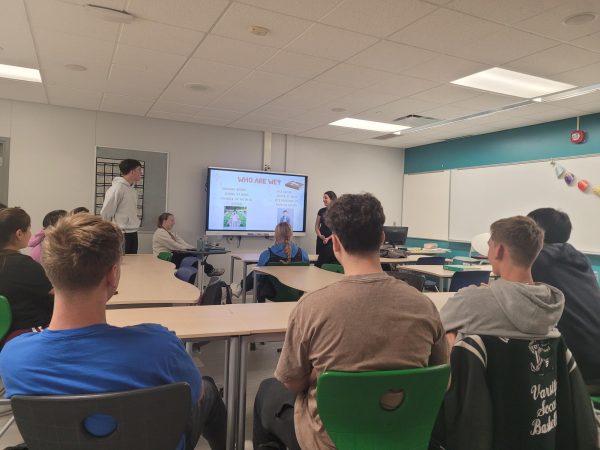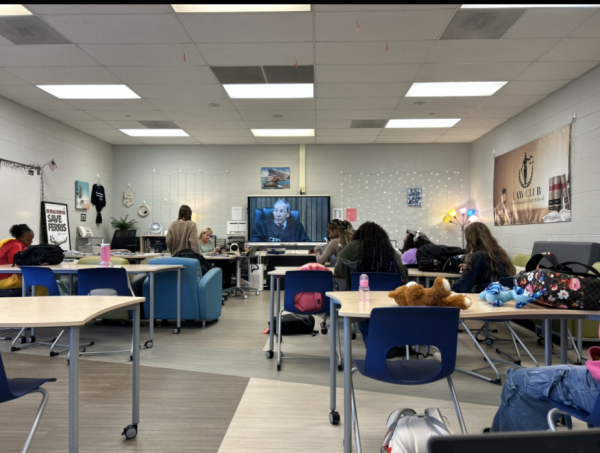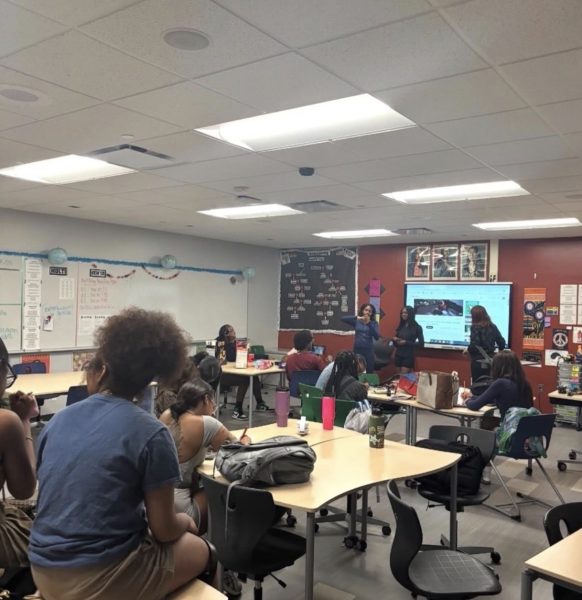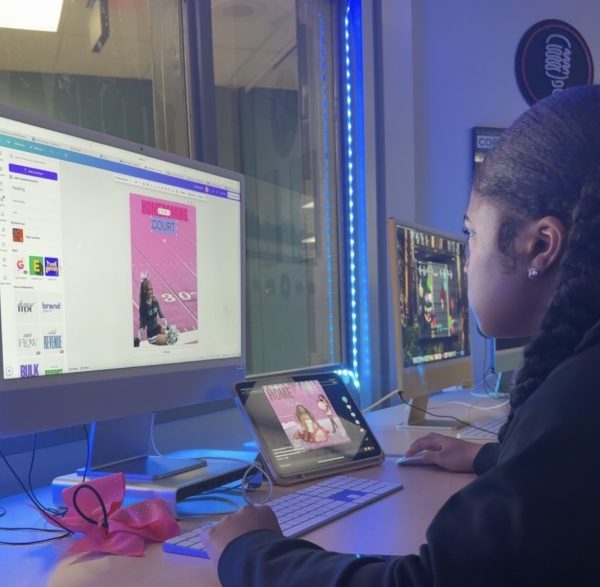Separation, Struggles and Strength
Discussing the topic of divorce and the separation of families and all of the good and bad effects that occur.

Divorce or a separation of parents’ relationship, is one of the most stressful events a child or teenager can go through. No matter what the age of the child at the time during which their parents’ relationship ends, many emotions and questions are forced through their minds. Divorces and separations are, in fact, extremely common. According to Mckinley Irvin.com, in the United States, 41% of first marriages end in divorce, as do 60% of second marriages. In addition, 876,000 divorces occur in America every single year. Despite how common it is, children and adolescents often feel uncomfortable talking about it; without open conversation, children can then feel isolated rather than supported. When the topic comes up, children with married or coupled parents may feel uncomfortable and children with divorced or separated parents can become upset. As a result, the conversations about divorce and split families can become awkward and almost silenced. Nevertheless, divorce is too important of a topic to be kept quiet between friends and family.
A side effect of a divorce are all of the potential negative side effects. The breaking apart of a family leaves many opportunities for both parents and children to become distressed, emotional, and left with questions. We have asked West Bloomfield High School (WBHS) students with divorced or separated parents what the hardest challenges are as an effect of having a split family. Students participated but asked that their names be withheld. One interviewee stated, “ The first struggle that came with having divorced parents was the holidays. My parents had to argue over who got ‘the kids’ for each Thanksgiving, Hanukkah, and New Years.” Divorcehelpforparents.com stated, “It is quite common to allot one parent ‘even-year’ holidays and the other ‘odd-year’ holidays.” Another teen stated that, “Due to my father’s very busy travel schedule, my mother had full physical custody of me, while they both retained joint legal custody. At that time my mother started a new career that kept her very busy and I hardly saw her. She worked long hours, so I mostly saw her on the weekends.” Many children with separated families see one parent more than the other, and have to be exposed to the legal aspect of their situation as well. The last interviewee spoke of remarriage, and stated how it brought up questions of feeling good enough. The student recalled, “When my dad got remarried, I felt like he wanted to move onto a new life and leave me behind. I did not understand why his old life, which I was a part of, was not good enough for him.”
Even though divorce is looked at as the breaking apart of a family, many people who come from separate families learn valuable lessons they would not have otherwise. One teen said with pride, “By dividing myself into two places instead of one it requires me to be more organized, accountable, and flexible in my day to day routine. There are many situations I have encountered where I have to have responsibility to get through them.” Most teens who grow up in a divorced or split home have the constant requirement to keep moving from place to place all while remembering every single object they would possibly need for school, a social event, sports, and more. These teens learn how to take care of themselves and act as an individual in order to keep up with busy schedules. Another teen stated a benefit of having their parents divorced as, “All that I now could not imagine my life without. I have been introduced to parental figures and siblings that make my life better every single day. If my parents never separated, I would have missed out on so much love that I receive every single day.” Remarriage and step/half siblings can be looked at as a negative aspect by many teens, but certain situations allow support and loving relationships that came from the separation or divorce. Lastly, a teen stated that, “I learned that no matter what I was going through my parents and family were there for me and my parents love me even though they may not love each other anymore. Being a part of a divorced family has made me who I am today and has even helped me with many things I will use all throughout my life.” Divorce and separation have so many positive side effects that are usually masked by the negative even when teens who come from split families learn to grow strong, independent, and responsible.
Divorce and separation are topics that many people, both old and young, feel uncomfortable talking about. The idea that split families should only be a personal issue is the reasoning that many people who go through divorces or separations feel like they are alone. Nobody who goes through their family splitting is ever alone. All of the initial confusion, sadness, questions, and frustration are completely normal, and millions of teens have all felt the exact same way. The concept of divorce and separation being talked about should not make those with married parents feel uncomfortable or make those who do not feel ashamed. The reality is that many families every day split up, and while both good and bad arise from it, everything occurring is absolutely going to end up okay.
If you are experiencing divorce or separation in your family, or struggling with feelings connected to divorce or separation, please make an appointment to talk to your counselor. As children with divorced parents, the authors of this article are available to talk to you and assure you that you are not alone.
Your donation will support the student journalists of West Bloomfield High School. Your contribution will allow us to purchase equipment and cover our annual website hosting costs.

Ari is a senior and this is his fourth year in Spectrum. He loves the school spirit at West Bloomfield High School, especially the attendance at sports...









julia kassel • Apr 29, 2015 at 12:41 pm
I feel really attaches to this article because you were talking about parents who are divorced. My parents are divorced as well. My favorite part of the article is when you started that you are not alone. I like this because i hope anyone who reads it gets that youre never alone.
Ali A. • Apr 29, 2015 at 10:04 am
This topic might not be taken seriously at times, and I think it is our jobs to inform those who think this is just some pointless topic that, 1. As mentioned in this article, 41%, 41!, that’s almost half of the US’ population, of those who first get married end by getting divorced. 2. Also mentioned here, that not everyone feels the need to talk about their parents getting divorced, so don’t force someone, who’s parents got divorced, to chat about it. This article does a magnificent job at informing readers about divorces, but if only people in the US took the time to read article like these. That isn’t to say nobody reads articles about divorces though.